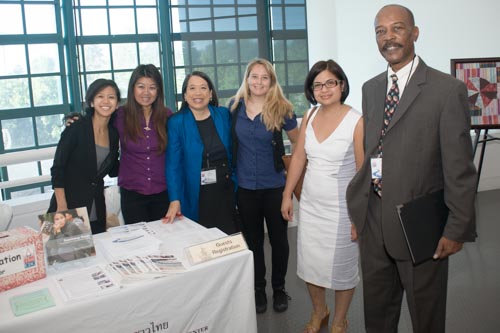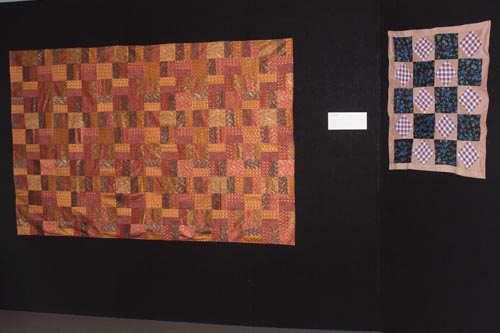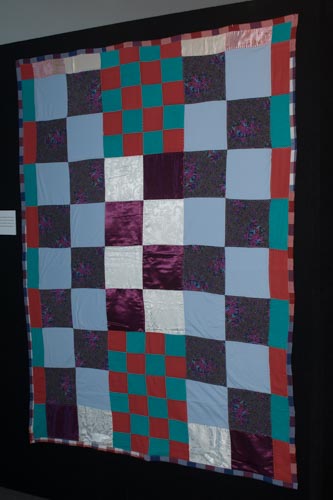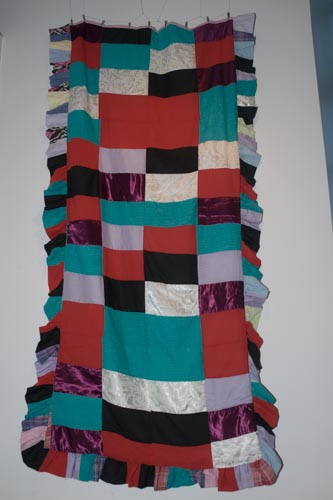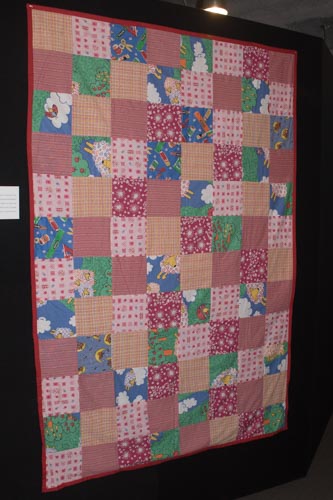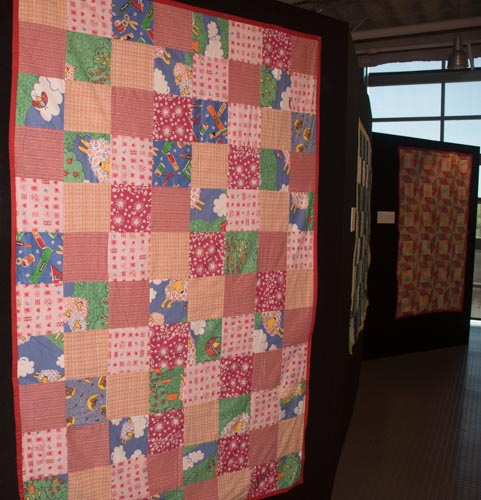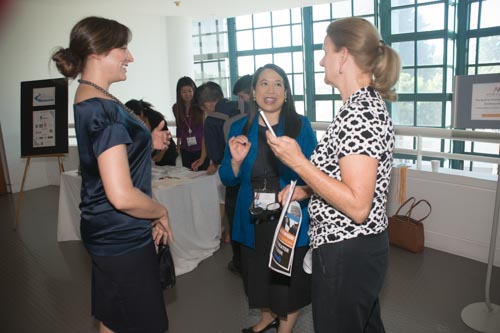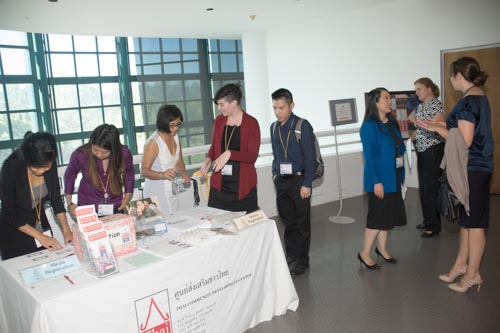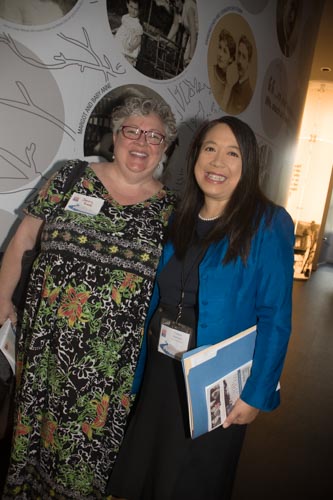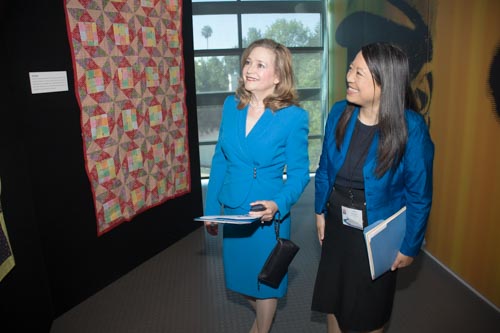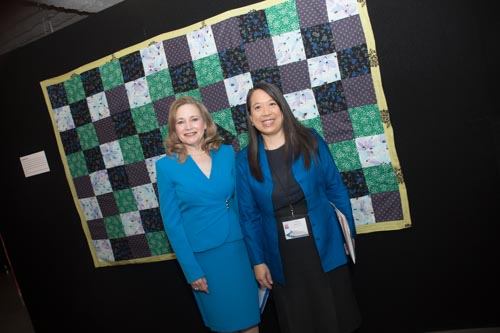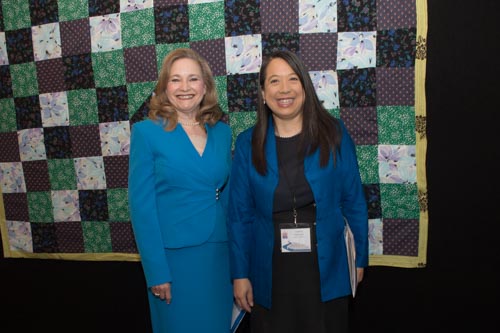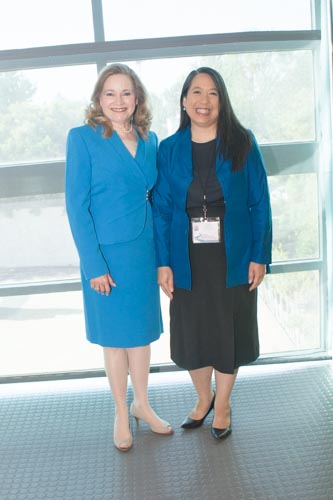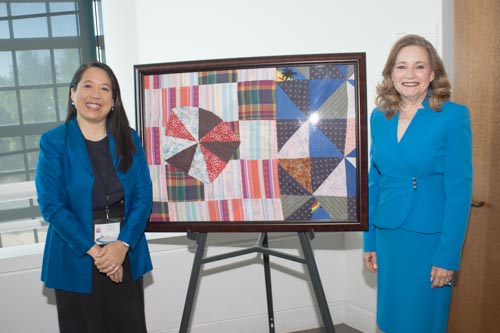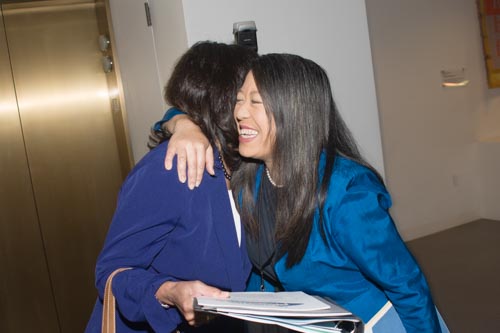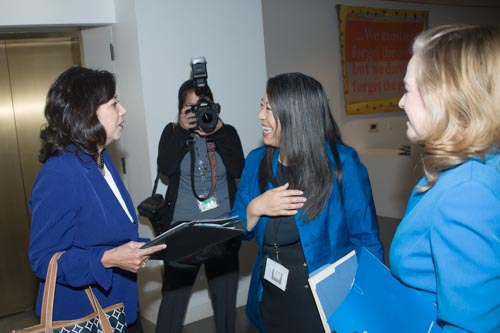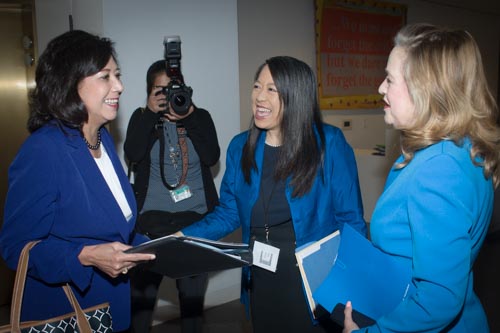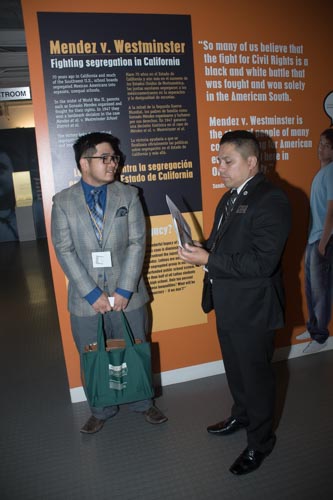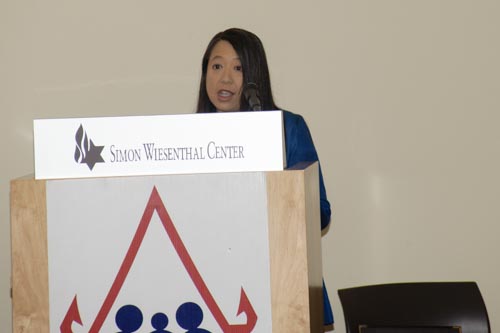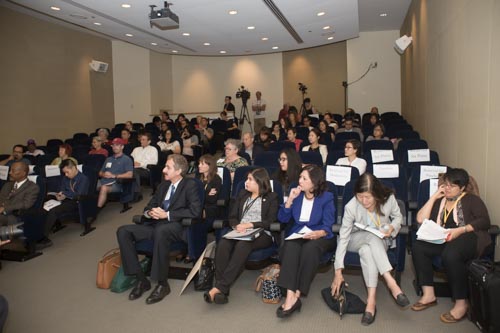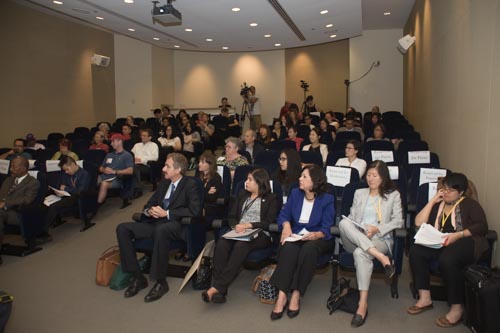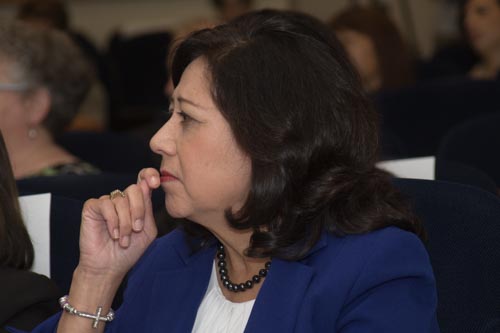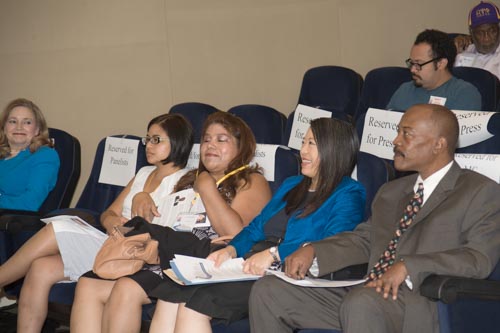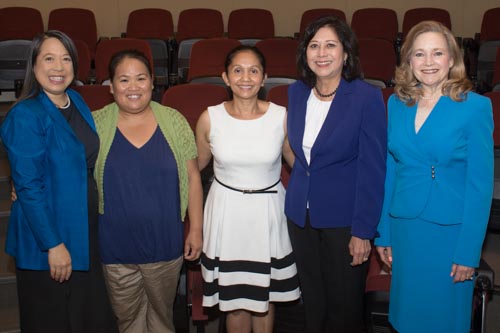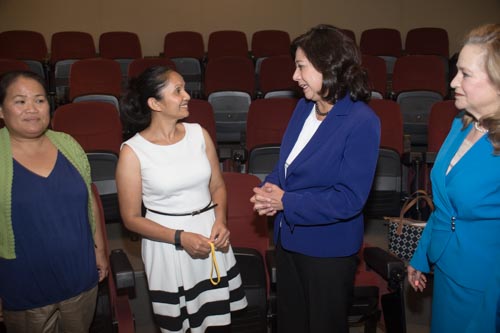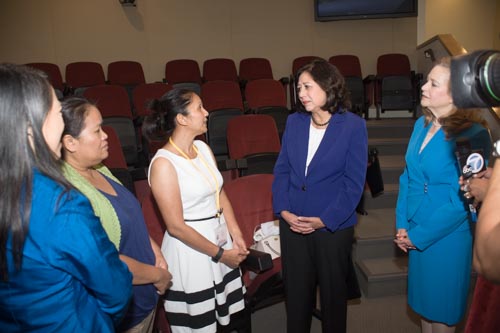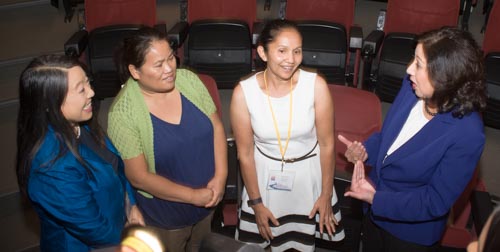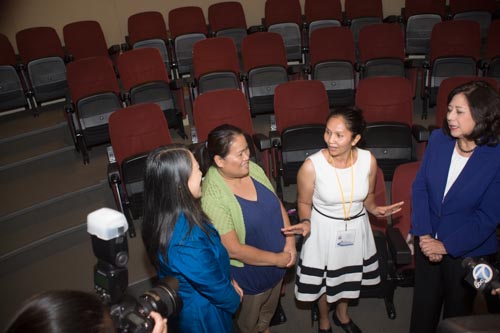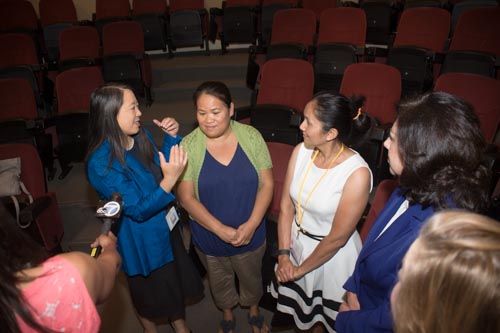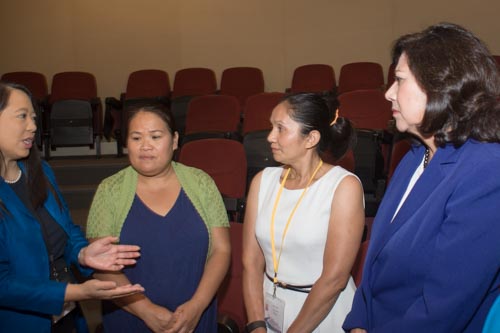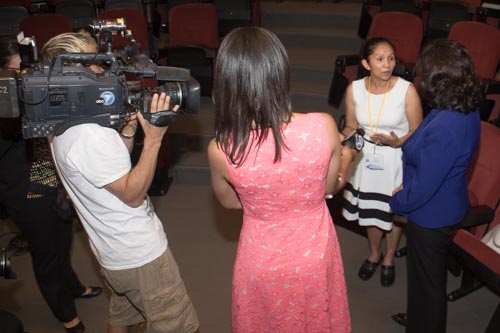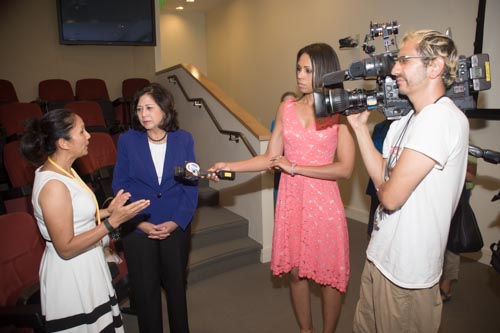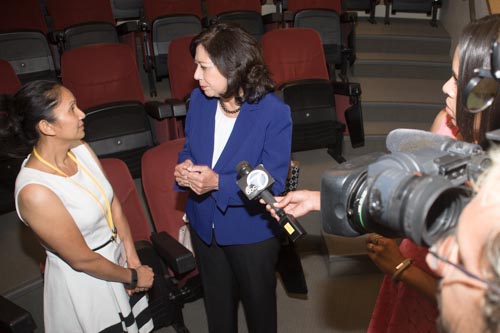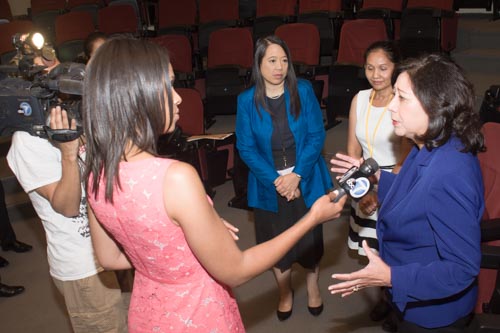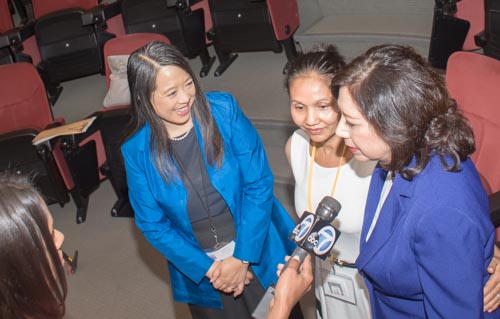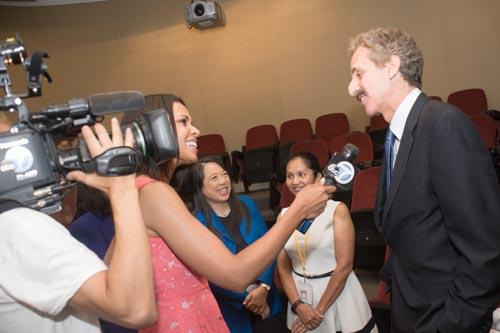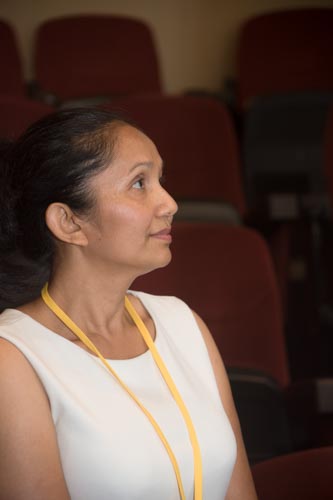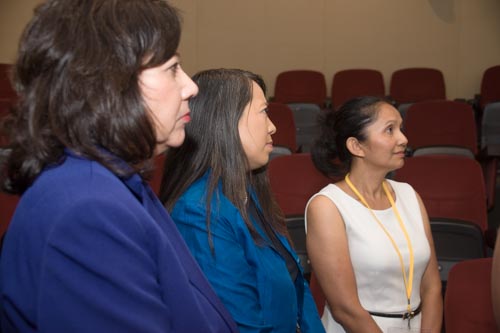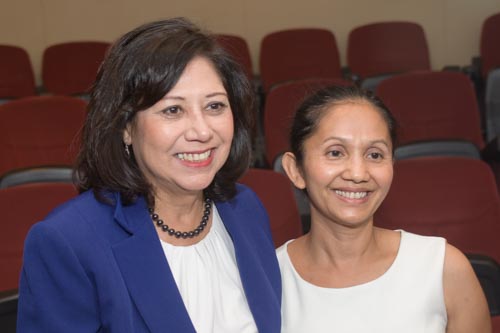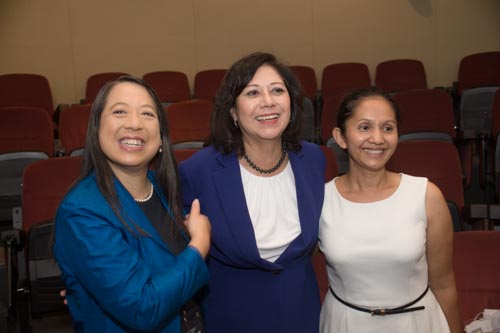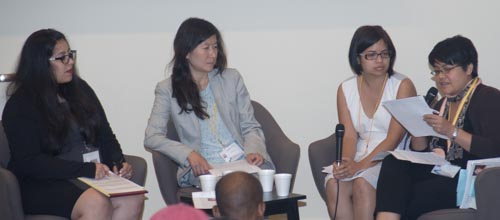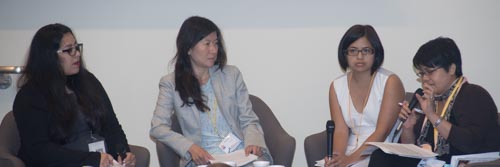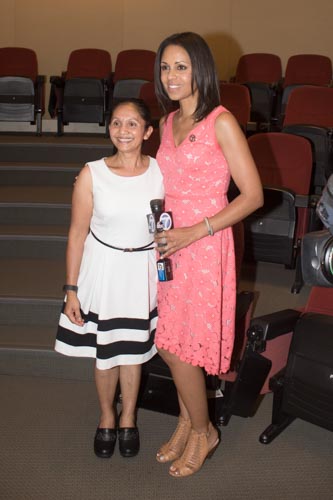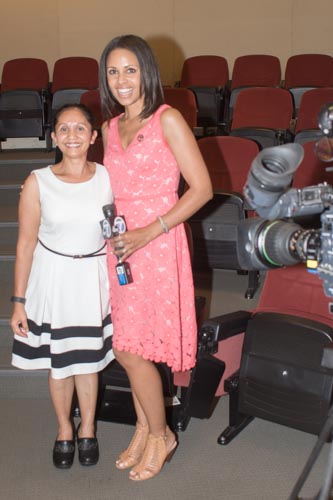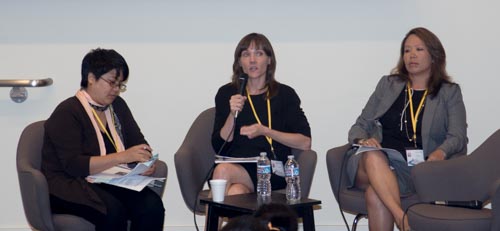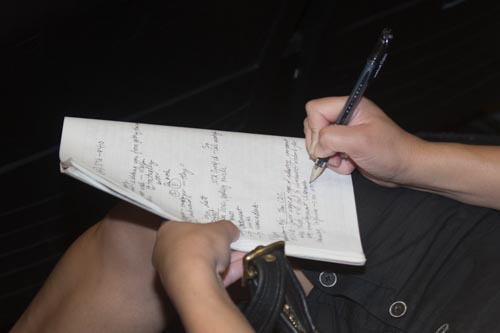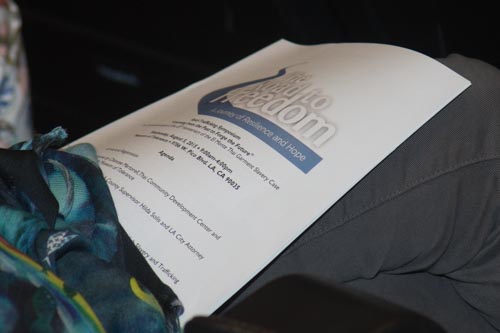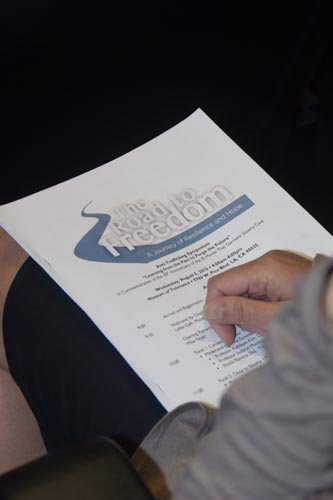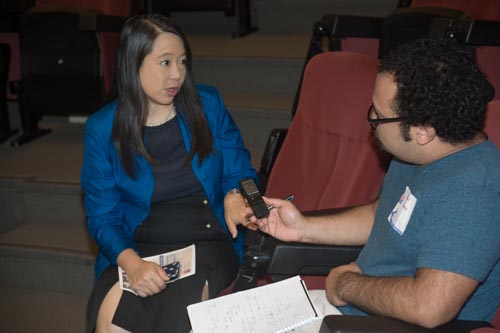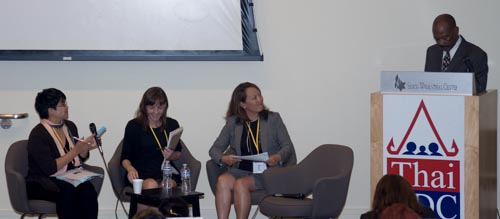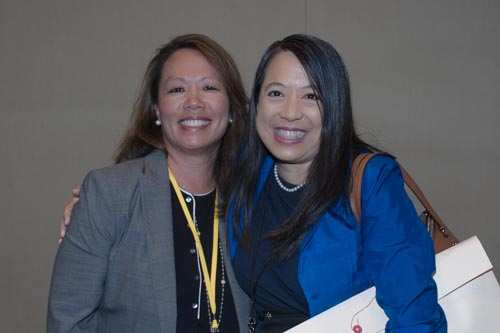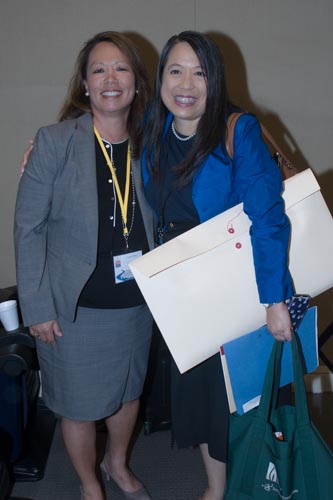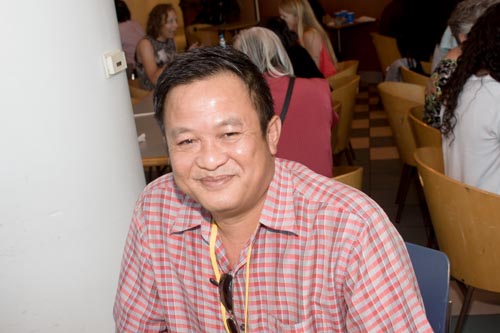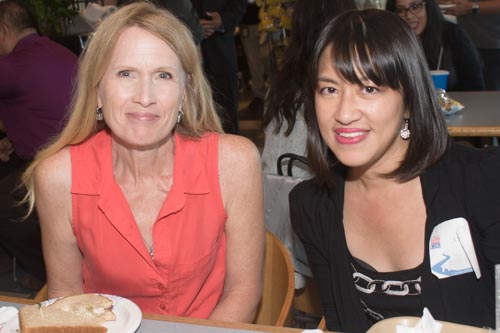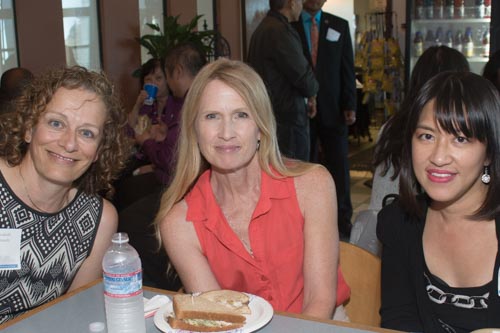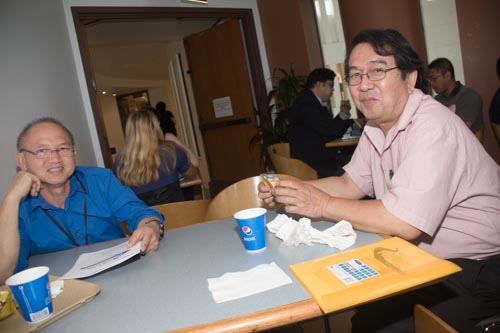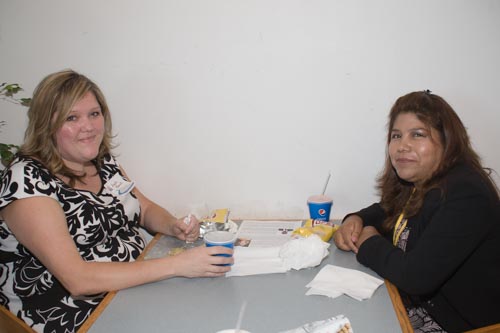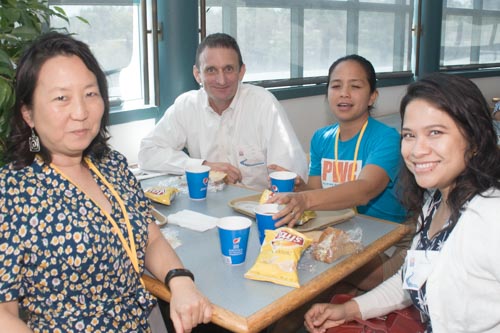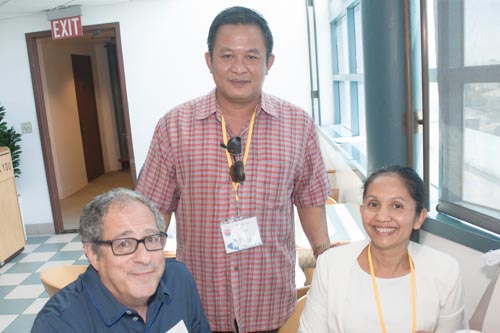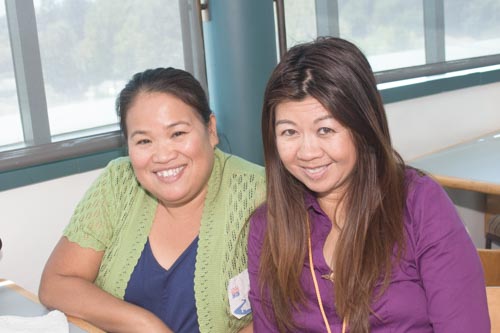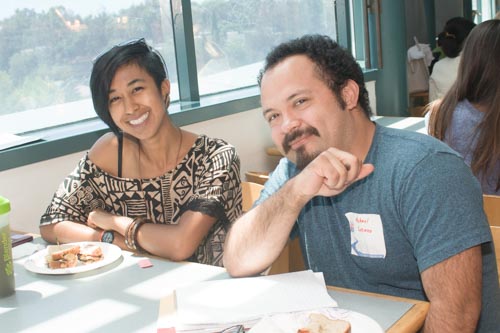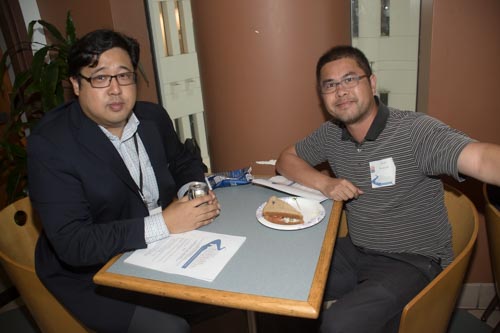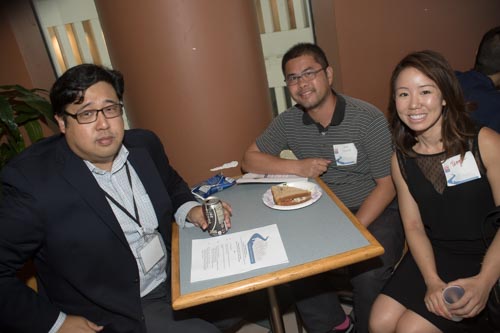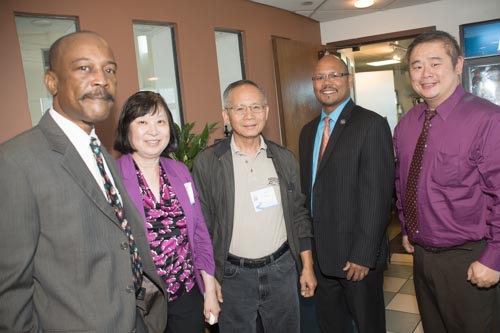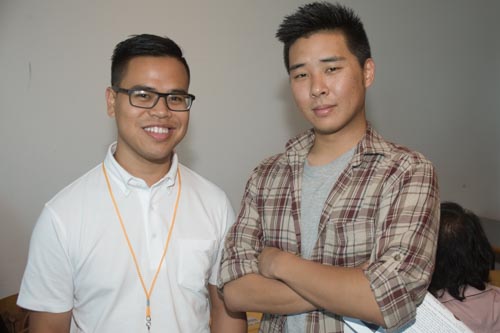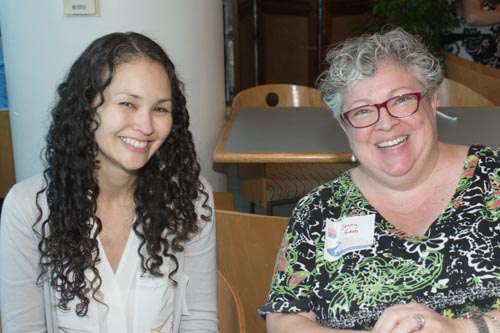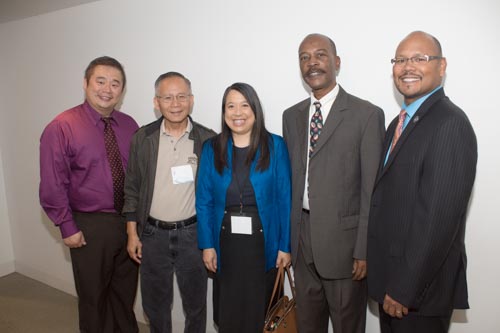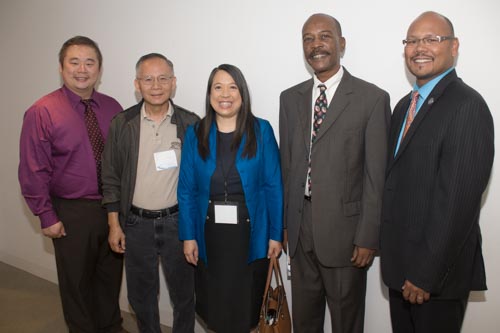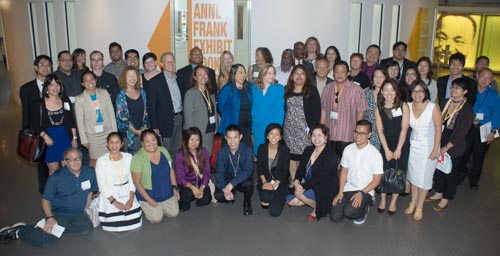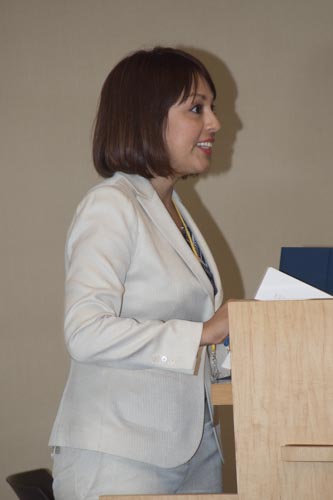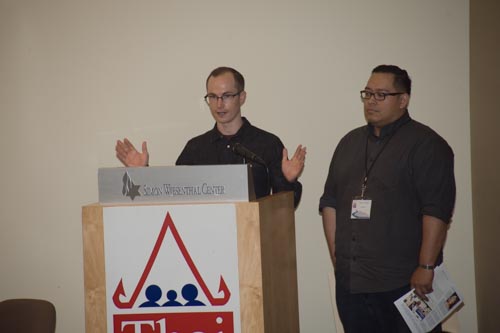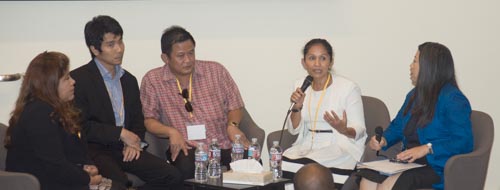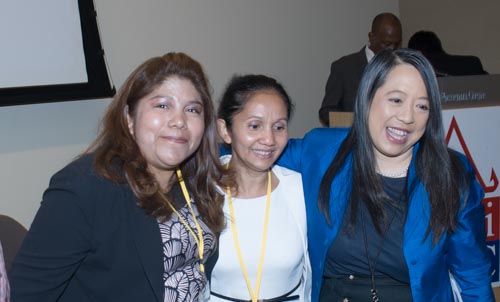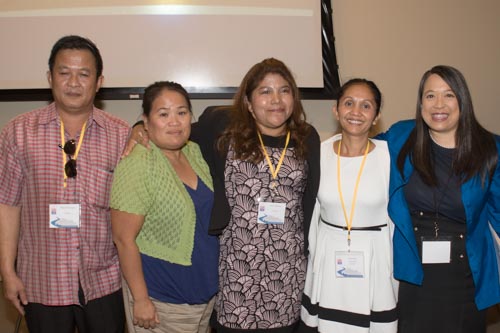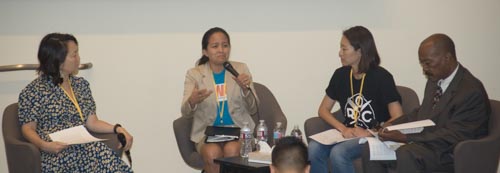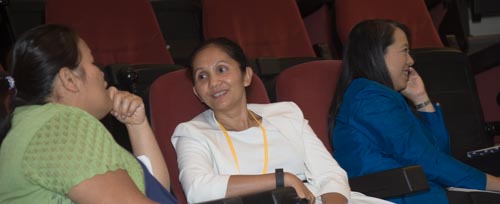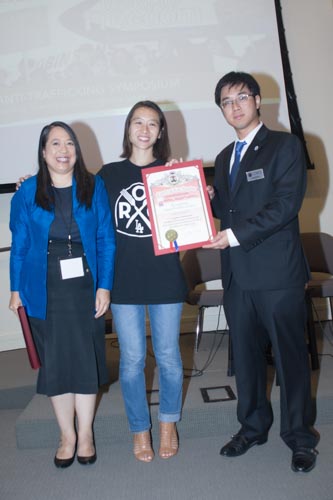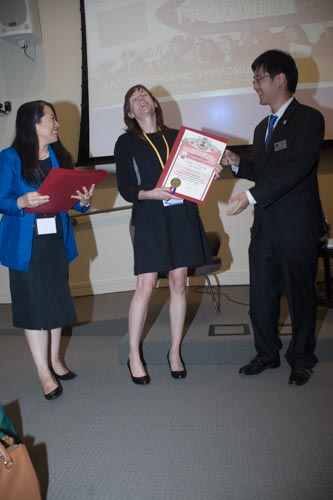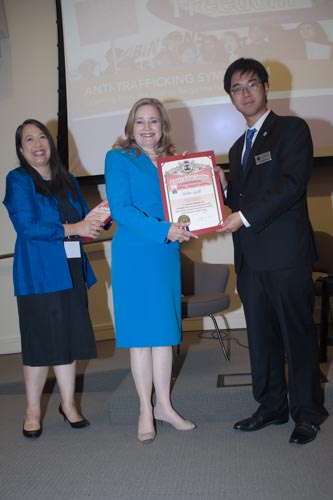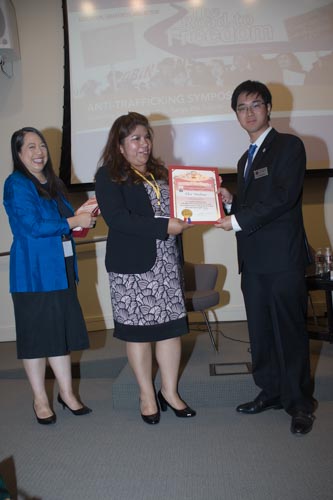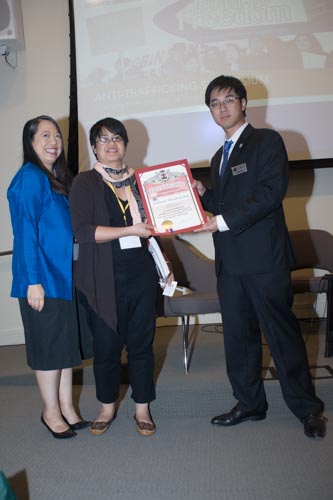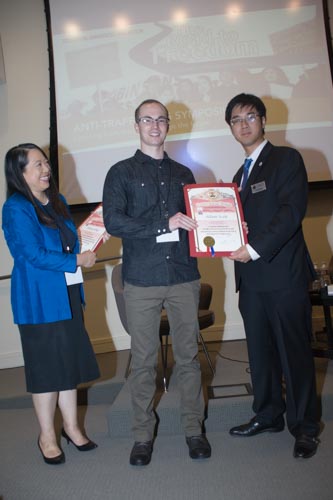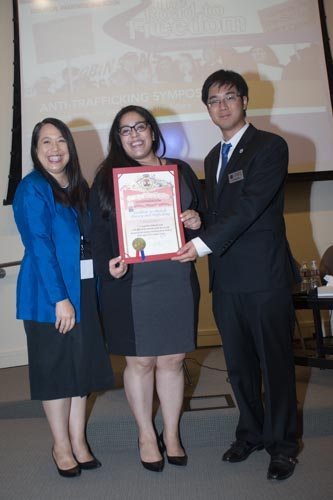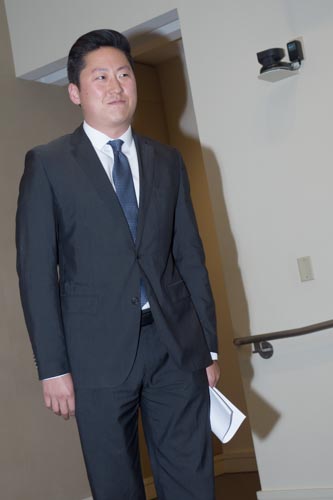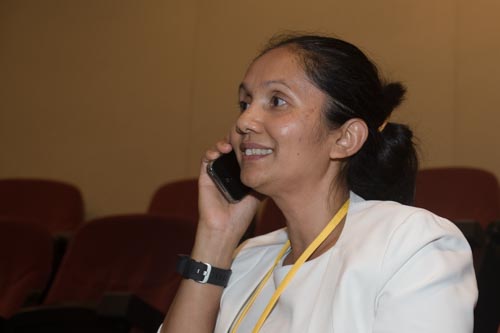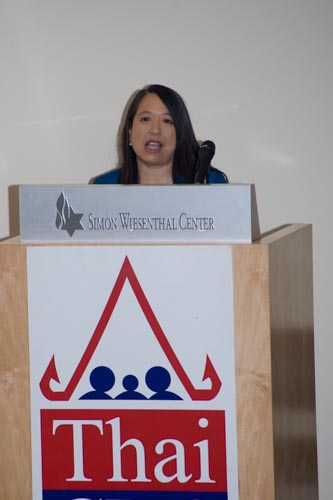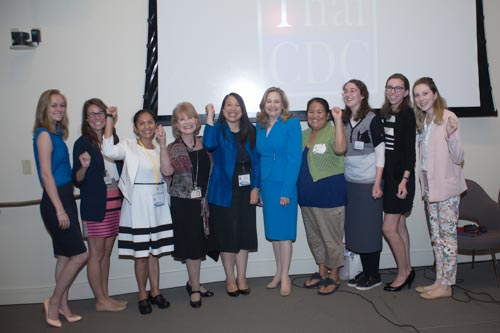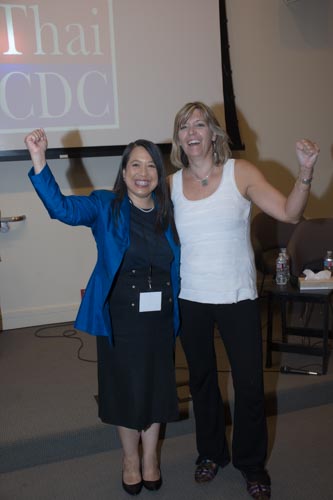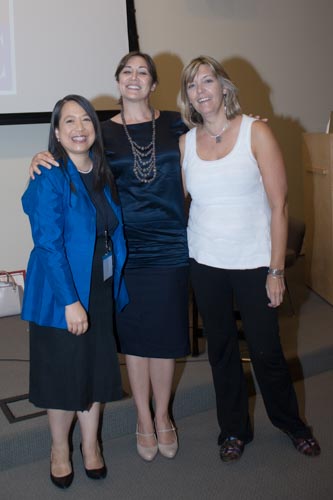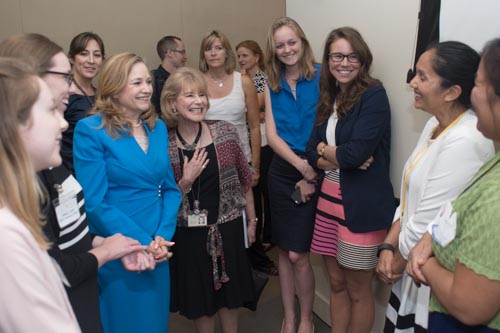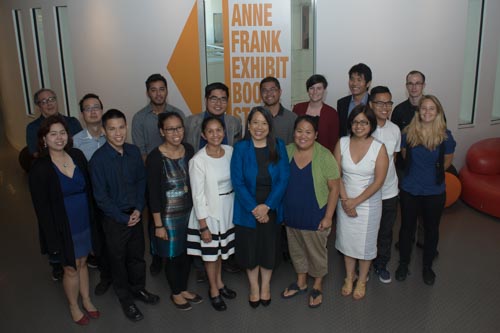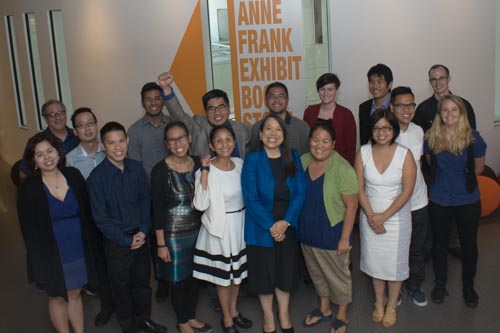(Photo Slideshow)
The Thai Community Development Center (Thai CDC) and the Museum of Tolerance hosted the Anti-Trafficking Symposium: “Learning from the Past to Forge the Future” as part of the twentieth anniversary of the landmark El Monte Thai Garment Slavery Case. Government officials, academicians, community leaders, and survivors discussed the status of human trafficking and current efforts to combat modern-day slavery. The theme for the 20th anniversary commemoration is “The Road to Freedom: A Journey of Resilience and Hope.”
Los Angeles County Supervisor Hilda Solis greeted symposium attendees, “I am honored to be able to provide the opening remarks for the Anti-Trafficking Symposium with my city colleague, LA City Attorney Mike Feuer. We have come far in the past 20 years to address and make huge strides in labor rights, wage theft and anti-trafficking. However, there is much more work to do to protect human rights. As a Los Angeles County Supervisor, I stand ready to continue to fight for workers and their families.”
“We are here today to remember our history, not only Thai American history here in Los Angeles, but our collective history forged out of the struggle for justice. With Thai CDC’s support, the El Monte Thai garment workers achieved justice. That struggle continues through the continued activism of thousands of immigrant workers. These struggles while occurring here in Los Angeles is a global story— migrant workers exploited by virtue of being designated as foreigners—- we can hear their voices saying, “We are not slaves, we don’t want to be just victims. We are workers who are hungry for justice,”” states Chancee Martorell, Executive Director of the Thai Community Development Center.
“The Museum of Tolerance (MOT) is honored to host this important symposium to highlight an issue that is among the contemporary priorities of the MOT,” said Liebe Geft, Director of the Museum of Tolerance. “The shame of human trafficking and modern-day slavery is no stranger to Southern California, as the infamous El Monte case first revealed. Twenty years later, this scourge is claiming ever-increasing numbers of victims, despite global protocols and legislative attempts to stop it. It has become a national human rights crisis and deserves a huge public outcry. The MOT pledges to work together with activists to highlight the multifaceted dimensions of the trafficking issue and possible solutions that are urgently needed.”
On August 2nd, 1995, the Thai CDC, along with state and federal agencies, helped liberate Thai nationals from the first case of modern-day slavery in the United States. Seventy-two Thai nationals fell victim to what would later be known as human trafficking. In the summer of 1995, no one had heard of human trafficking and modern-day slavery, let alone knew how to combat the crime and assist its victims. Thru the efforts of Thai CDC, the civil, immigrant and workers’ rights organizations that Thai CDC brought together, and key players within various state and federal agencies, it gave the nation’s first modern-day slavery victims the emergency relief and resettlement assistance they needed while grappling with a system of laws and procedures that weren’t designed to tackle what has become one of the largest and growing illegal industries in the world.
Thai CDC went on to pursue justice for the workers bringing them redress and restitution. The case spawned an anti-trafficking movement that led to the founding of the Coalition to Abolish Slavery and Trafficking in 1998 and the passage of the Trafficking Victims Protection Act (TVPA) by the United States Congress in 2000.
Since the discovery of the El Monte Case, Thai nationals have been a primary target of traffickers resulting in Thai CDC’s involvement in not only the first modern-day slavery case but other precedent setting cases in US history: the first case prosecuted on “psychological coercion,” the case to receive the first T visa, the first male labor trafficking case, the first case of winning justice through civil means, the first cases of trafficking through legal means, and the largest human trafficking case.
Much has changed since the case of El Monte broke. Laws and understanding of human trafficking has expanded but much more has yet to be done as the scourge of human trafficking seemingly goes unabated. The symposium was designed to highlight the new avenues that traffickers take to ensnare their victims and the policies and due diligence needed to circumvent their ever changing methods of deception and coercion. Notables such as Los Angeles Supervisor and former US Secretary of Labor, Hilda Solis and Los Angeles City Attorney, Mike Feuer addressed the audience while survivors and experts from community-based organizations, government, law enforcement, and academia discussed the intersection between migrant workers, labor trafficking, and wage theft on four different panels. The panels were on: 1) Close to Slavery: US Guest Worker Program; 2) Immigrant Workers’ Survivor Stories; 3) Fighting Wage Theft in California, and 4) Consent and Trafficking. A teaser to the documentary, “Ghost Factories,” about the case was also screened.
California Special Assistant Attorney General, Monica Ramirez discussed what the Office of California Attorney General, Kamala Harris, is doing to combat human trafficking in the State. And John Choi, District Director for CA Senate President Pro Tempore, Kevin de Leon, gave an update on the California Wage Theft Prevention Bill, SB 588, moving through the senate right now.
In keeping with the theme of the 20th anniversary commemoration around “resilience and hope,” the last speaker was Sarah Symons appropriately, the Co-Founder and Executive Director of Made By Survivors, an international non-profit fighting human trafficking and slavery with empowerment, education and employment.
Over the past ten years, Made by Survivors has helped over a thousand slavery survivors and their children in India, Nepal, Cambodia and Thailand to get free from slavery, to rebuild their lives and to build a solid foundation for the future. Projects include vocational training and long term, well-paid employment in respected professions such as goldsmithing, nursing, blockprinting, and accounting, as well as education sponsorships for children freed from slavery, shelter building and entrepreneurship training. Because another form of slavery is poverty, it is critical that survivors are assisted in becoming independent and productive individuals who are economically self-sufficient.
To honor twenty years of work combatting human trafficking and the El Monte Thai garment workers’ spirit of human resiliency, Thai CDC will reflect on the past to plan for the future by commemorating this historic event through a month long program in addition to the symposium that also includes:
• A Museum of Tolerance exhibit of quilts made by Thai trafficking survivors, on display through August
• A “radio play” presentation of Henry Ong’s play, “Fabric” at the Pasadena Playhouse
• A benefit concert by Thai pop sensation Boyd-Nop already held last Sunday
See press coverage at:

